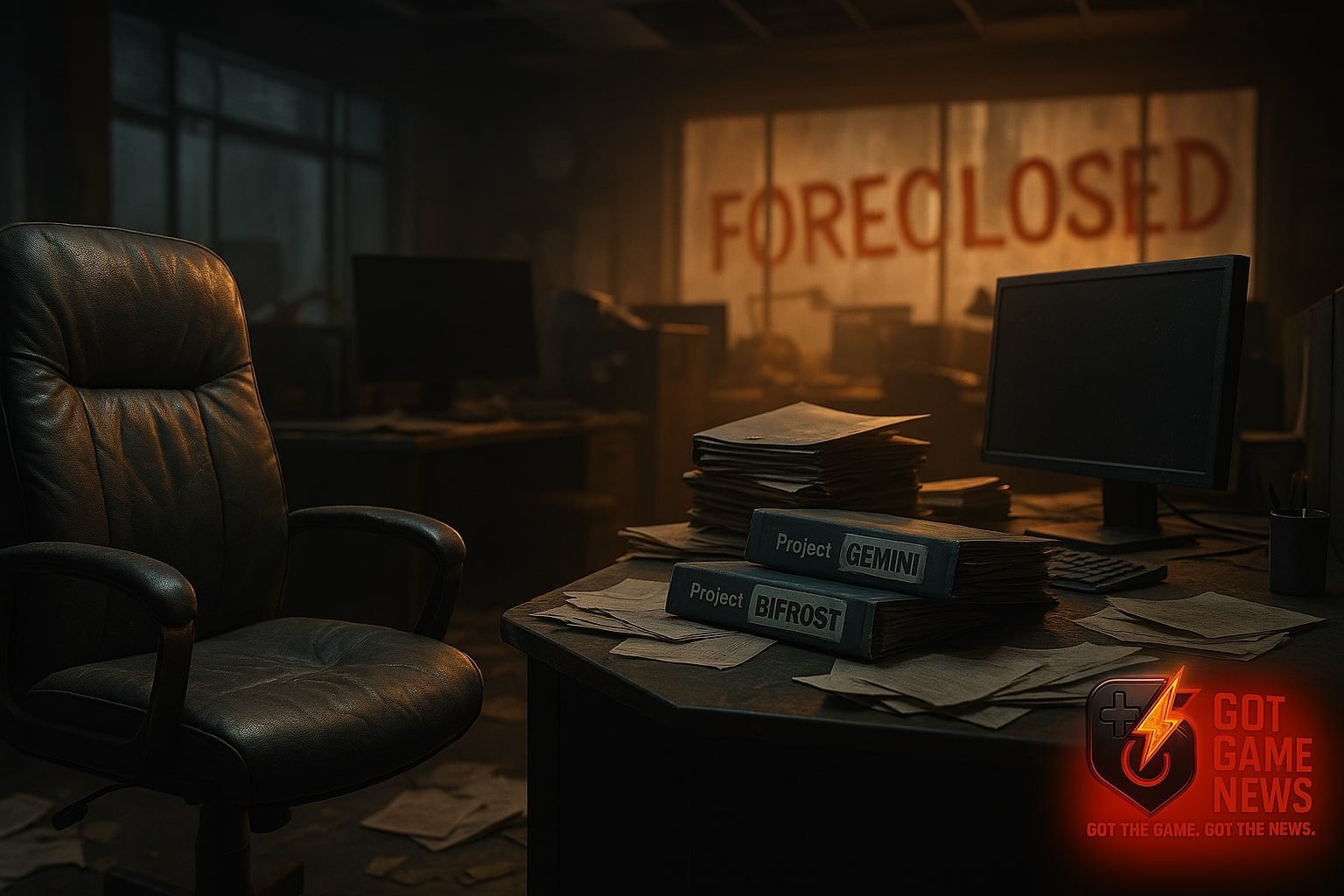People Can Fly, the Polish studio best known for the high-octane chaos of Bulletstorm and the co-op looter-shooter Outriders, is hitting a serious turbulence patch. On June 2, 2025, the studio announced the suspension of two in-development titles—Project Gemini and Project Bifrost.
And that wasn’t the only bad news. As a result of these suspensions, the studio confirmed a round of layoffs affecting roughly 60 developers across its global offices. For a studio that once seemed poised to ascend into the upper tiers of AA/AAA development, this marks a significant and sobering reset.
A Breakdown in Publisher Relations
The most alarming part of this news is the nature of the breakdown between People Can Fly and one of its key partners, Square Enix. Project Gemini was reportedly being developed in collaboration with Square Enix, but communications between the two companies collapsed. According to internal communications, Square Enix failed to provide necessary contractual documentation and stopped engaging meaningfully about the project’s future.
That left PCF in a financial and creative limbo. Without clear terms or a commitment from its publishing partner, continuing work on Gemini became a risky proposition. The result? A full halt in production.
Bifrost Falls Too
If Gemini collapsed due to external failings, Bifrost represents the internal side of the equation. A self-funded title, Project Bifrost was already operating under budget constraints. With one major project suddenly suspended and studio finances likely strained by ongoing R\&D and overhead, PCF decided to shelve Bifrost as well. This wasn’t entirely unexpected—there had been reports in late 2024 of scaling back on Bifrost’s team—but it still signals a troubling pattern.
This isn’t the first time People Can Fly has faced this scenario. Just months ago, another project, Victoria, was also put on hold. A company once working on seven projects is now down to a fraction of that, with only a few remaining in active development.
The Layoff Wave Continues
The layoffs that followed this dual suspension are unfortunately part of a wider trend in the games industry. From indie teams to giants like EA and Ubisoft, studios across the globe have been downsizing, restructuring, or shutting doors altogether. The reasons are complex: increased production costs, shifting consumer habits, and the long tail of pandemic-era disruptions.
For PCF, the layoffs mean losing talent and momentum. A 60-person reduction may not sound like much compared to some of the industry’s larger cuts, but for a mid-sized studio like PCF, it’s significant. It raises questions about how much bandwidth they truly have left to manage their remaining slate.
What’s Still in the Pipeline?
Despite these setbacks, People Can Fly isn’t down and out just yet. They’re still collaborating with The Coalition on the upcoming Gears of War: E-Day, which remains one of the most anticipated Xbox titles on the horizon. They also have Project Lost Rift, a survival-extraction shooter that could tap into the same market that made Escape from Tarkov and The Cycle cult hits.
In addition, there are three mysterious projects in the works: Bison, Echo, and Delta. These haven’t been formally unveiled, but all signs point to smaller, perhaps more modular development approaches—likely a strategic pivot in response to recent financial constraints.
Lessons From the Crash
The fall of Gemini and Bifrost is a harsh reminder of how fragile game development can be, especially when studios rely heavily on third-party publishers. Square Enix’s failure to communicate effectively or fulfill contractual obligations undermined an entire project. On the flip side, PCF’s attempt to self-publish a major title without enough financial buffer revealed a lack of planning or overconfidence in its ability to scale.
These are mistakes that could haunt the studio—but also, perhaps, push it toward a leaner, smarter future. If PCF can successfully pivot, retain key talent, and refocus on its core strengths, it may yet rebound.
Final Thoughts
This isn’t just a studio in trouble. It’s a cautionary tale for mid-tier developers navigating a brutal industry landscape. Publisher partnerships can turn sour, internal projects can go off the rails, and one or two missteps can lead to layoffs and lost momentum.
People Can Fly is at a crossroads. It can either regroup and find a sustainable model going forward or risk becoming another cautionary tale of a studio that tried to do too much, too fast.
What happens next may come down to whether they can rebuild trust—internally, with fans, and perhaps most critically, with future publishing partners.






